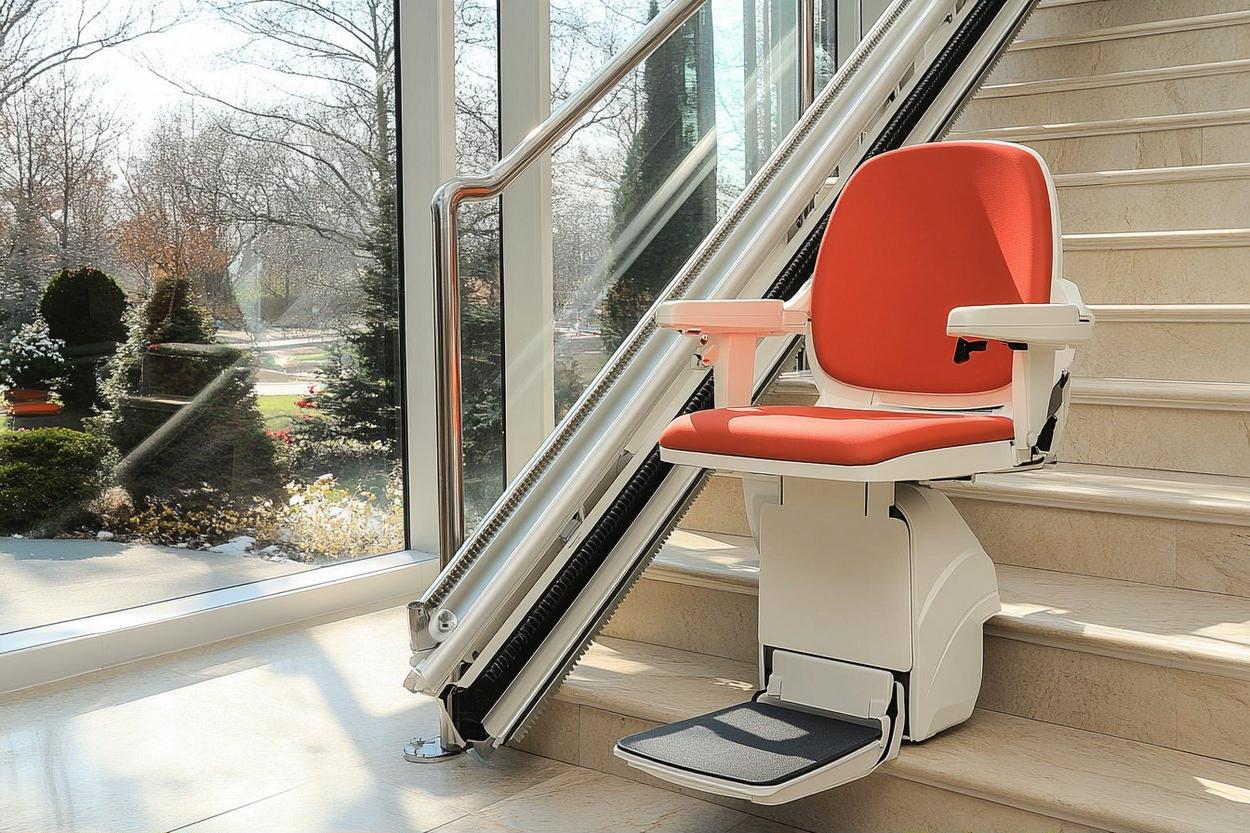Mobile Stair Lifts Without Installation: Safe, Simple, and Ready to Use
For many people with limited mobility, stairs can be a daily challenge. Whether due to age, injury, or a health condition, navigating up and down steps isn’t always safe — or even possible. That’s where mobile stair lifts without installation come in.

For individuals with mobility challenges, navigating stairs can be a significant barrier to independence at home. Mobile stair lifts present an innovative solution that doesn’t require permanent installation or structural modifications. These portable mobility aids offer immediate accessibility while maintaining the original appearance of your staircase. Understanding how these devices work, their benefits, and who might benefit from them can help determine if a mobile stair lift is the right choice for your situation.
What Is a Mobile Stair Lift?
A mobile stair lift is a portable device designed to help individuals with mobility limitations safely navigate stairs without permanent installation. Unlike traditional fixed stair lifts that attach to the wall or staircase, mobile units are freestanding, battery-powered systems that can be moved from one location to another. These devices typically consist of a sturdy frame with wheels, a seat or platform, and controls operated either by the user or an assistant. Their portable nature makes them ideal for temporary needs, rental properties, or situations where permanent modifications aren’t feasible or desired.
Mobile stair lifts come in various designs, including climber-style units with tracks that grip the stairs, wheelchair platform models that transport the entire wheelchair, and portable chair lifts that carry the person while seated. The defining characteristic of all mobile stair lifts is that they don’t require structural alterations to the home and can be readily deployed when needed.
How Does a Mobile Stair Lift Work?
Mobile stair lifts operate using rechargeable battery systems that power motorized mechanisms to safely transport users up and down stairs. Most models utilize one of two primary designs: attendant-operated climbers or self-operated portable units.
Attendant-operated models require a caregiver to guide the device. The assistant positions the user (often seated in the device or remaining in their wheelchair) at the bottom of the stairs, then uses controls to activate the climbing mechanism. The stair lift’s specialized tracks or wheels grip each step sequentially, maintaining a level position for the passenger throughout the journey. Safety features like automatic braking systems ensure stability during the climb.
Self-operated models allow users more independence, featuring intuitive controls that the passenger can manage themselves. These typically include simple buttons or joysticks to control direction and speed. Most mobile stair lifts incorporate emergency stop buttons, seat belts, and stability sensors to prevent accidents. The battery-powered operation eliminates the need for electrical outlets near the stairs, though regular charging is necessary to maintain functionality.
What Are the Key Benefits of Mobile Stair Lifts?
The advantages of mobile stair lifts extend beyond their non-permanent nature. Their flexibility allows for use in multiple locations—perfect for families who frequently visit relatives or travel between homes. Unlike fixed installations that can take days or weeks to install, mobile units offer immediate accessibility without waiting periods or construction disruption.
Financial considerations also favor mobile options for many users. Without installation costs or potential structural modifications, the initial investment is typically lower than permanent alternatives. Additionally, these devices preserve the aesthetic appearance of staircases—an important consideration for those concerned about home value or visual impact.
Mobility between different environments represents another significant advantage. Users can transport their stair lift to accommodate various settings, whether navigating different staircases within the same building or taking the device to other locations entirely. This versatility makes mobile stair lifts particularly valuable for active individuals who require accessibility across multiple environments.
Who Should Consider Using a Mobile Stair Lift?
Several groups can benefit significantly from mobile stair lift technology. Individuals recovering from surgery or temporary injuries often need short-term accessibility solutions without permanent home modifications. The portable nature of these devices makes them ideal for rehabilitation periods, with the option to store or sell the unit once mobility is restored.
Renters face unique challenges when addressing accessibility needs, as permanent modifications may violate lease agreements or require landlord approval. Mobile stair lifts circumvent these issues entirely, providing accessibility without alterations to the property structure.
Frequent travelers or those who divide time between multiple residences will appreciate the transportability of mobile units. Rather than installing fixed stair lifts in each location, a single mobile device can address accessibility needs across different environments. Similarly, caregivers who assist multiple clients in different settings may find mobile stair lifts to be practical tools for providing accessibility wherever needed.
Cost Considerations and Popular Mobile Stair Lift Options
Mobile stair lift pricing varies considerably based on design, capacity, and features. Basic attendant-operated models typically range from £1,500 to £3,000, while more sophisticated self-operated units can cost between £2,500 and £6,000. Additional features like higher weight capacities, extended battery life, or specialized wheelchair platforms will increase the price accordingly.
| Model | Type | Key Features | Price Range |
|---|---|---|---|
| Scalamobil S35 | Attendant-operated | Climbs straight and curved stairs, 140kg capacity | £3,000-£4,000 |
| Liftkar PT-S | Attendant-operated | Foldable design, 130kg capacity | £2,800-£3,500 |
| Liftkar PT-Universal | Wheelchair platform | Fits most wheelchair types, 150kg capacity | £4,000-£5,000 |
| Mobile Stairlift | Self-operated | Remote control operation, 120kg capacity | £2,500-£3,200 |
| Freedom Stair Climber | Attendant-operated | Compact storage, 135kg capacity | £2,200-£3,000 |
Prices, rates, or cost estimates mentioned in this article are based on the latest available information but may change over time. Independent research is advised before making financial decisions.
Beyond the initial purchase price, consider ongoing maintenance requirements and battery replacement costs. Most manufacturers recommend annual servicing to ensure continued safe operation. Battery life typically ranges from 2-5 years depending on usage patterns, with replacement costs averaging £100-£300 per battery.
Rental options may provide a cost-effective solution for temporary needs, with monthly rates typically ranging from £100-£300 depending on the model and rental duration. Some medical insurance policies or government assistance programs may cover part of the cost for qualifying individuals, though coverage varies significantly by provider and circumstance.
Conclusion
Mobile stair lifts represent a flexible, non-permanent solution for overcoming stair-related mobility challenges. Their portable design offers immediate accessibility without structural modifications, making them suitable for temporary needs, rental situations, or multi-location use. While they require some physical assistance and regular charging, these devices provide a practical alternative to permanent installations. By considering the various models available, their operational requirements, and cost factors, individuals can determine whether a mobile stair lift aligns with their specific mobility needs and living situation.




